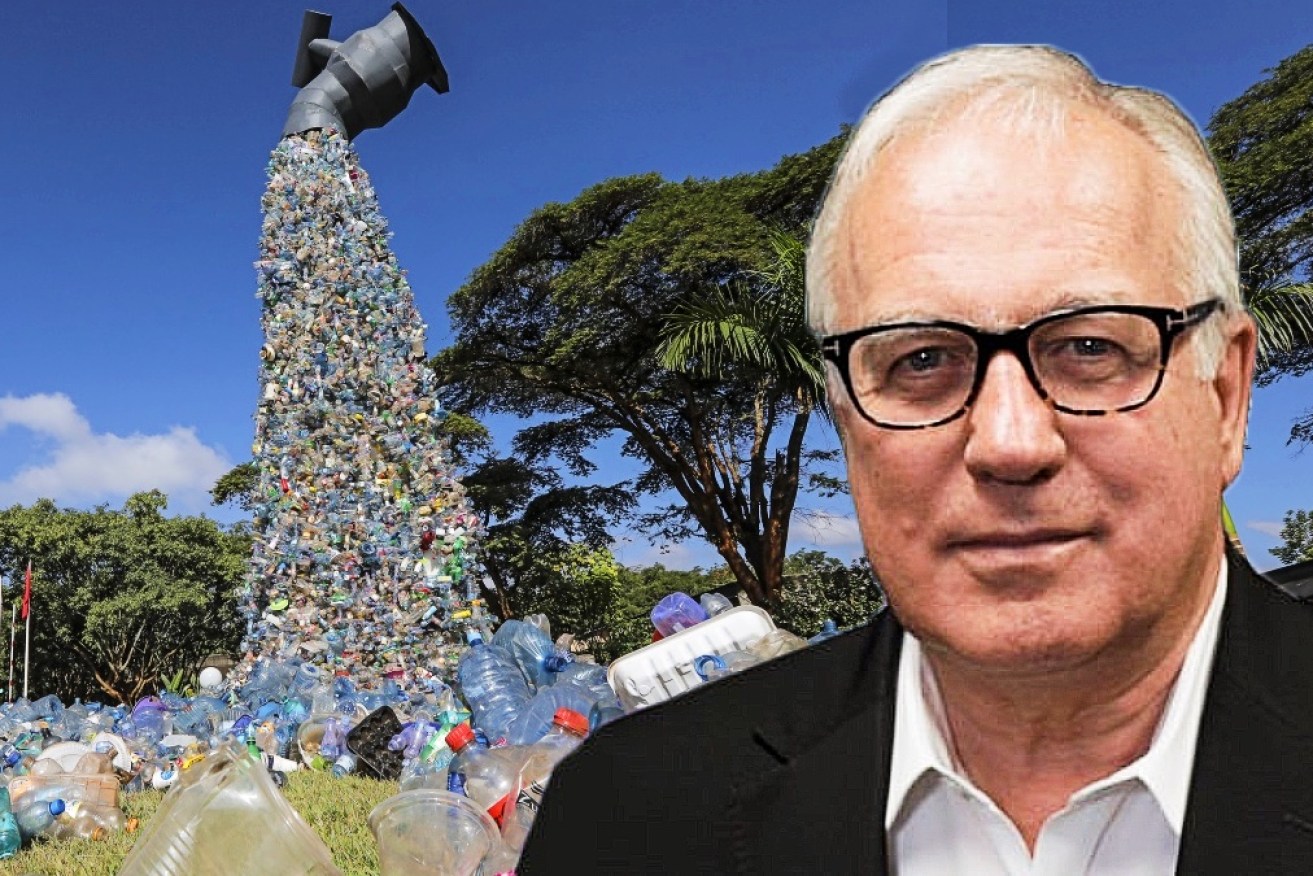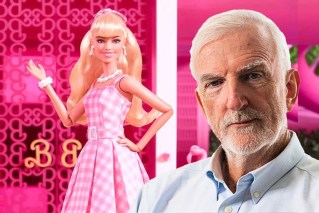Alan Kohler: How two Australian chemists came up with a global solution for plastic


An Australian company has come up with a global solution for recycling plastic, writes Alan Kohler.
One of the more hopeful inventions for the planet has come out of the University of Sydney and is being commercialised worldwide by an Australian company that is supported by some big global packaging and chemical firms.
The company is called Licella, founded and run by an organic chemist named Dr Len Humphreys, and the process for which it has global patents turns plastic back into oil, and biomass (plant waste) into fuels.
Last week, Licella got a $12 million grant from the federal government to help build a plastic recycling plant on land owned by Dow Chemical in Altona, Victoria. It is also working on a factory in north Queensland to turn sugar cane waste into biocrude, which can be made into aviation fuel.
The first commercial plastic-to-oil plant will be in Wilton in the north of England, also in partnership with Dow. It will start operating in March next year.
How it started
It has been a 17-year journey for Len Humphreys.
In 2005, he was working on biodiesel – that is, turning leftover vegetable oil into diesel – when he and Professor Thomas Maschmeyer of the University of Sydney decided to see if a way could be found to turn biomass, and then plastic, into oil to make renewable fuels and chemicals – that is, plastic.

It has been the culmination of a 17-year journey for Len Humphreys. Photo: ABC News
They came up with what they call the Cat-HTR process, which stands for catalytic hydrothermal reactor. It’s basically a fancy way of saying it uses heat and water to liquify solids, such as plastic, and plant material.
Professor Maschmeyer won the Prime Minister’s Prize for Innovation in 2020, partly for the plastic recycling process, but also for his work on zinc bromide batteries for storing renewable energy.
The two chemists built their first pilot plant in 2008, in Somersby on the NSW central coast.
Dr Humphreys says the unique part of Licella’s platform is the use of water, which controls the break-down of the polymers within the plastic and allows it to convert economically into oil.
He says the process can be used on all types of plastic – hard and soft – as well as mixed and layered plastic packaging, where the plastic is combined with paper or other contaminants, not normally recyclable.
How it’s going
Licella has been working successfully with Nestle to use KitKat wrappers, which combine metal and plastic, to produce Australia’s first soft plastic food wrapper with recycled content.
By the way, it’s handy that it works on soft plastic because it emerged last weekend that REDcycle, the company that has been picking up plastic bags from Coles and Woolworths, has actually been stockpiling it since 2018 in warehouses around the country.
Licella is an unlisted public company with about 500 shareholders, Dr Humphreys is CEO.

Consumers are no longer able to return soft plastics to their local supermarkets for recycling.
It has kept the Australia and New Zealand rights to the technology, and is building the Altona plant. It has also given a licence covering the rest of the world to a company called Mura, which is 30 per cent owned by Licella, 35 per cent by UK high-net worth individuals and the rest by Dow Chemicals, Chevron, LG Chemicals and KBR (Kellogg, Brown and Root), who are funding the plant in Wilton.
There are now six projects underway using the technology: LG Chemicals, GS Caltex and Hyundai are building plants in South Korea, Mitsubishi Chemicals in Japan and Dow Chemicals in Germany, as well as the ones planned for the UK and Altona.
Those are all about turning plastic back into oil so it can be easily turned back into food-grade recycled plastic, which means the plastic can be infinitely recycled.
The other important use of the invention is for turning biomass into fuel, specifically sustainable aviation fuel.
Queensland’s sugar industry produces about four million tonnes of cane waste per year, which Dr Humphreys says would power most, if not all of Qantas’s fleet.
The Department of Defence has committed a $5 million grant to Licella to help fast-track this for defence purposes.
It will probably be a little more expensive than aviation fuel that is made from fossil oil, simply because of the difference in scale, but the pressure is on airline companies to reduce their carbon footprint, and it will be a long time before battery-powered planes are flying around, although Rolls Royce is testing a hydrogen-powered jet engine at the moment.
Hope for a global solution
This Australian invention using heat and water to turn plastic and biomass into oil and fuel is one of the great hopes of mankind, it seems to me.
The big problem with fossil fuel, and the plastic that is made from oil, is that these are wonderfully useful products. The energy content of oil, coal and gas is very dense, responsible for massive economic progress over the past century, and the uses for plastic are incredibly wide and mostly impossible to replace.
But as this chart from Professor Will Steffen of ANU shows, it was in the 1950s, around the time that Mr McGuire told Benjamin, in the film The Graduate, “I want to say one word to you, just one word – plastics”, that carbon dioxide emissions from fossil fuels really took off.
Source: Professor Will Steffen
As Professor Steffen says, devastating greenhouse gases began building up in the atmosphere in the industrial revolution of the 19th century, but didn’t really get going until the mid-20th century.
With plastic the damage is two-fold: The manufacture of it produces greenhouse gases and the stuff doesn’t rot. Not only is plastic waste filling up the world’s oceans and choking marine wildlife, micro-plastics are getting into everything.
For example, this story recently revealed that samples taken from the Weddell Sea in the Antarctic have come back “riddled with” synthetic micro-plastic fibres, and another story last month reported that micro-plastics had been found in human breast milk for the first time.
There is much to do to save the planet and human civilisation from the damage caused by our understandable addiction to fossil fuels, and it looks like this Australian invention will be an important part of the effort.
Alan Kohler writes twice a week for The New Daily. He is also founder of Eureka Report and finance presenter on ABC news.









